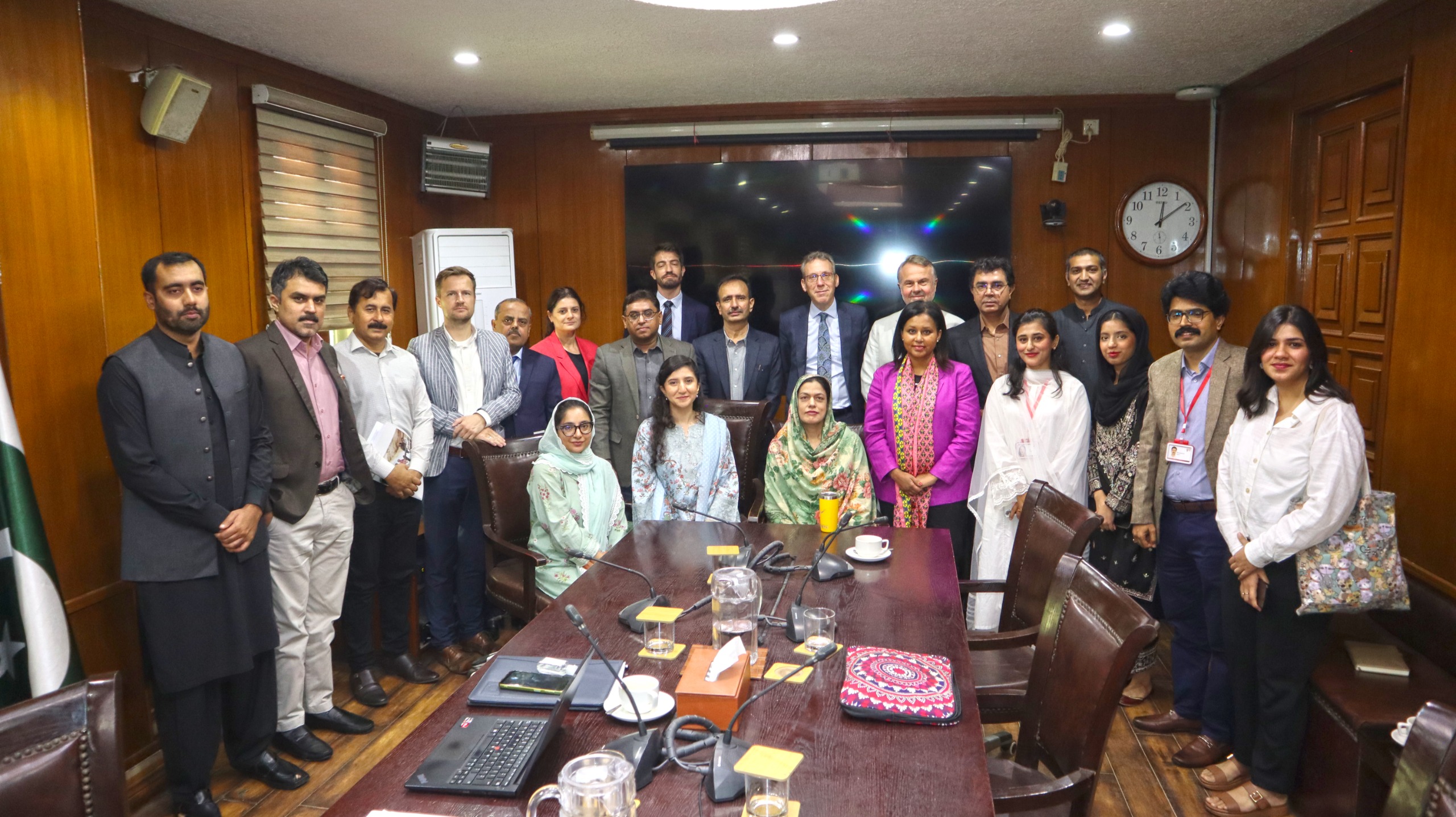The Government of Sindh, in partnership with the European Union (EU) and the German Federal Ministry for Economic Cooperation and Development (BMZ), convened the first Project Steering Committee (PSC) meeting of the Adaptive Social Protection (ASP) initiative at the Planning & Development Board in Karachi. The Steering Committee decided to jointly strengthen the provincial social protection, address citizen’s exposure to climate vulnerabilities more effectively and coordinate the support by international development partners in a more effective way.
As a key element of the joint work, it was emphasized to share data of government agencies to allow for anticipatory action – enabling relief efforts before floods, droughts and other calamities impact severely on people’s lives. The Steering Committee also decided to pilot innovative social protection interventions in Badin, Sanghar, Sujarwal and other districts to identify the most efficient poverty relief interventions, to be scaled by the Government of Sindh.
GIZ Pakistan, on behalf of the European Union and the German Government is supporting the design and implementation of adaptive social protection programmes. This strategic collaboration ensures that social protection in Sindh is not only reactive but forward-looking—rooted in equity, data, and long-term sustainability.
Chief Economist, Planning and Development Board, Aslam Soomro emphasized the importance of embedding adaptive social protection in Sindh’s development agenda, calling it a foundation for addressing climate change, disaster risk, and social protection challenges. He stressed that success depends on strong coordination across agencies.
The EU Head of Cooperation Jeroen Willems highlighted the commitment of the EU to strengthen adaptive social protection in Sindh and welcomed the strong commitment of the government to develop a strategy and reinforce coordination within the government and with development partners
Wolfgang Hesse, Cluster Coordinator at GIZ Pakistan, praised Sindh’s leadership and stressed that integrating climate challenges makes ASP part of a broader Pakistan-Germany partnership linking social protection with climate resilience.
Johanna Knoess, Head of the ASP programme at GIZ, outlined three pilot interventions planned in Badin, Sanghar, Sujawal, Thatta, and Karachi, targeting vulnerable groups and integrating existing social protection programmes. She said that as part of the ASP initiative, targeted programs are being launched across Sindh to reach underserved groups. These include support for 40,000 women agricultural workers through registration, financial literacy, savings schemes, and livelihood investments in Thatta, Sanghar, Badin, and Sujawal; the Mamta Plus programme, reaching 250,000 pregnant and lactating women with digital and financial literacy and matched savings in three districts; and assistance for 10,000 informal urban workers in Karachi through bank account access, savings enrollment, and microfinance for small business development.
Looking forward, partners discussed scaling up successful interventions and expanding Team Europe’s engagement in the coming years. All reaffirmed commitment to making adaptive social protection a core pillar of Sindh’s policy framework.


